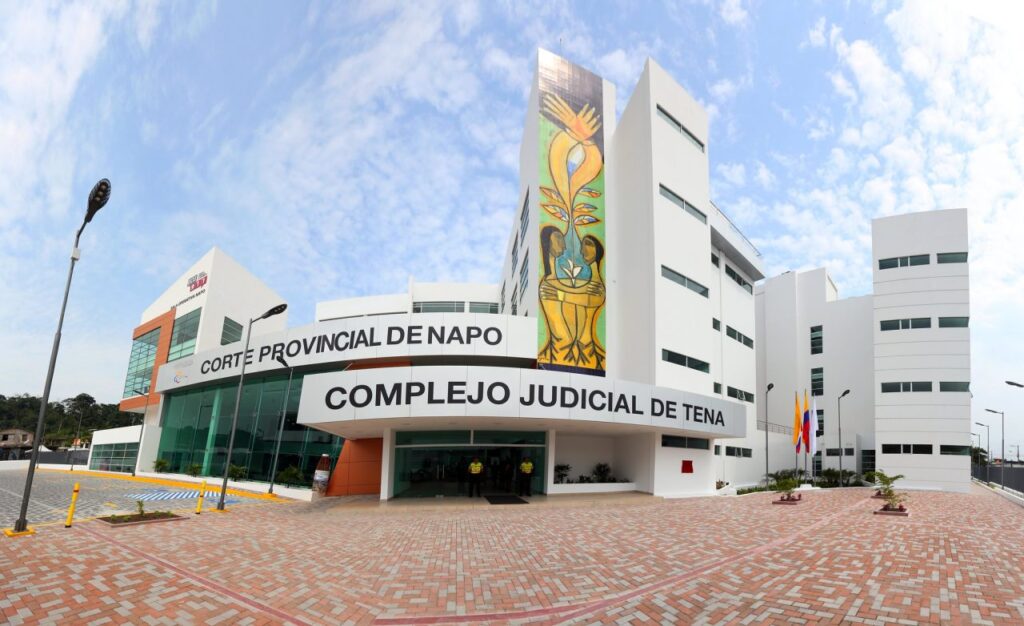TO
in the face of the obvious failure of neoliberalism in Latin America, there is a growing wave that sounds alarms about mere cosmetic changes to consumer models based on unlimited economic growth. It is essential to regain control of natural resources and manage their management based on environmental and social justice, and get rid of the market ideology imposed from the centers of global power.
A few days ago I had to moderate, together with Liliana Buitrago, from the Political Ecology Observatory of Venezuela, an interesting and urgent online seminar, with the title of this article, in which members of the Southern Ecosocial Pact participated (https://pactoecosocialdelsur.com/).
The central theme was the rejection that our countries and indigenous, rural and Afro-descendant communities have to sacrifice all natural resources to satisfy the calls green new deals (new green agreements), designed by corporations and organizations from rich countries that in a reductionist way seek to transition from fossil fuels to so-called clean energy. We do not want to see oil and gas companies, which have destroyed entire ecosystems, become wind or extractive companies of critical minerals
, that they continue destroying the entrails of our territories, trampling on rights in a new colonialist phase, in which they continue to take for granted that they have the right to every natural resource on the planet (https://bit.ly/3KPRG1n).
Breno Bringel, professor of sociology at the Institute of Social and Political Studies of the State University of Rio de Janeiro, highlighted in the seminar how, in the face of capitalist rearrangements, complex social upheavals are taking place in Latin America that go beyond left-wing political positions and rights, but respond to an ecosocial and civilizational crisis, being socio-environmental devastation, inequality, militarization and forced migration all sides of the same coin. He highlighted how progressive governments in the region have not lived up to the extreme situation of the planet.
Pablo Bertinat, coordinator of the Energy and Sustainability Observatory of the National Technological University in Argentina, explained that alternative popular energy transitions are taking place locally, through resistance to extractive projects and anti-dam movements; alternatives of management, dispute over territories and that allow to build ways of life and satisfy needs where the State does not respond or does not exist. He warned about the narrow vision of the decarbonization
and new attacks from the green new deals for the removal of lithium, copper, balsa wood and hydrogen, which is the new vedete in our region
.
Tatiana Roa, an engineer from the Censat Agua Viva group, from Colombia, spoke from the point of view of La Vía Campesina and the Network of Ecological Farmers of Latin America, which focus the fair energy transition on food sovereignty and on the recovery of agricultural techniques that have been have lost with green revolution
and large-scale agribusiness. The central issue of the transition, according to Tatiana, is food, which is the main source of energy, and biomass, to supply exosomatic energy. He called for a transformation of the agro-industrial model to an agroecology that uses less fossil energy, less water and more hydraulic energy.
Carmen Aliaga, from the Latin American Network of Women Defenders, shared from Bolivia how indigenous people have resisted mining for decades, how the pandemic has exposed many crises, and how better conditions are created to face them when there is a social and political subject led by women. She explained how feminist political ecology puts the care of life and the body-territory dimension before the crisis of the pandemic than in its cruelty gives us the opportunity to politicize ourselves
and recover the use of medicinal plants and collective memories of health care.
These teachings from the local struggles show that although the green new deals resonate in rich countries given the climate emergency, it is impossible to achieve a true transformation of the destructive model without radical changes in the modes of consumption. It is not enough to change my car for an electric one. In this regard, Basav Sen, from the Institute for Policy Studies, recently published an excellent report warning about the continuity in the US of policies that favor automobiles and highways over public transport (https://bit.ly/3rSfHwc).
At the international level, while many governments reach agreements to reduce carbon emissions, if they continue to cling to free trade and investment agreements (including 4T) that prevent them from establishing sound environmental and public service policies, they will have little room for maneuver. to turn the wheel and prevent capitalist ecocide. Skepticism is growing towards states and governments, even progressive ones, that they can face the legal shackles imposed by treaties that protect transnational corporations and the capture of multilateral organizations. I recommend the document COP 26: In command, the financiers of the worst polluters; the greenwashing of a key climate summit, by Brid Brennan of the Transnational Institute and Kenneth Haar of the Corporate Europe Observatory (https://bit.ly/33UpRo5). We don’t have to look up, because nothing will fall from the sky, but face the dystopian reality we are approaching.
* Researcher at the Institute for Policy Studies in Washington DC www.ips-dc.org
Twitter: @ManuelPerezIPS
















